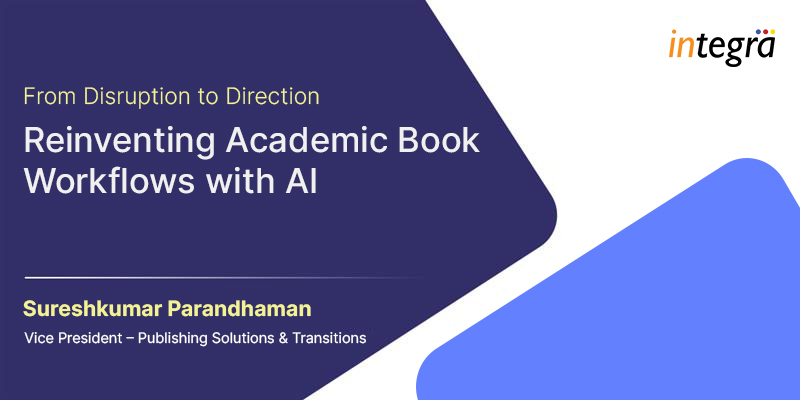Streamlining the Publication Process: The Benefits of Automated Language and Technical Checks

In the realm of academic and technical publishing, the journey from manuscript to publication is fraught with obstacles. Authors often find themselves caught in a meticulous vetting process, where a simple error in language or technical detail can lead to manuscript rejection. Authors invest significant time and effort into crafting their research, yet technical inconsistencies, stylistic errors, and formatting oversights can derail their submissions. For publishers, managing an influx of manuscripts while maintaining rigorous quality standards adds another layer of complexity.
The Role of Technology in Modern Publishing:
Fortunately, the publishing landscape is experiencing a transformative shift. Technology is emerging as a powerful ally, streamlining workflows and enhancing the overall quality of scholarly communication. Automated language and technical checks emerge as beacons of hope, offering a more streamlined, efficient approach to manuscript editing. These tools not only promise to enhance the quality of submissions but also significantly reduce the time spent on revisions.
Understanding Automated Language and Technical Checks:
Automated checks employ sophisticated algorithms to scrutinize manuscripts for a myriad of potential issues, from grammatical errors to formatting inconsistencies. Unlike traditional editing, which relies on the keen eye of human editors, these platforms provide a comprehensive, objective analysis that leaves no stone unturned. These innovative platforms utilize advanced algorithms to analyze manuscripts for a wide range of issues. From grammatical errors and stylistic inconsistencies to citation formatting and cross-referencing inconsistencies, automated checks identify potential pitfalls that might escape even the most meticulous human editor. The benefits are numerous:
- Consistency: Automated tools apply pre-defined parameters, ensuring consistency in formatting and style across submissions.
- Accuracy: The algorithms can detect a wider range of errors compared to manual review, minimizing the chance of inaccuracies slipping through.
- Efficiency: Automation significantly reduces the time required for initial manuscript screening, freeing up editors to focus on in-depth content evaluation.
Case Study
Platforms like AuthorPilot exemplify the transformative power of automation. A recent case study showcased the remarkable impact achieved by a UK-based journal publisher:
- 45% Reduction in Production Cycle: Leveraging AuthorPilot’s AI capabilities, the publisher slashed their production cycle by a staggering 45%.
- Enhanced Manuscript Quality: The platform facilitated detailed technical reviews, addressing citation formatting, research integrity, and compliance issues, leading to a significant decrease in manuscript rejections.
- Streamlined Workflows: Automated checks saved up to 10 hours of manual assessment time per manuscript, allowing editors to dedicate more time to in-depth content review.
Impact on the Publication Process:
The adoption of automated language and technical checks holds immense potential for the future of academic publishing. Benefits extend to both authors and publishers:
- Reduced Rejection Rates: By addressing technical issues upfront, authors increase the likelihood of their work being considered for publication.
- Faster Publication Times: Streamlined workflows translate to faster turnaround times, accelerating the dissemination of valuable research.
- Higher Quality Scholarly Communication: Automated tools ensure consistent formatting, accurate citations, and a higher overall quality of published works.
- Saves Manual Effort: Such platform automates many tedious tasks traditionally performed by editors, such as initial manuscript screening and formatting checks. This frees up valuable time for editors to focus on in-depth content evaluation and author interaction.
- Reduces Costs in Copyediting Downstream: With tools like AuthorPilot handling a significant portion of the initial editorial workload, the need for extensive copyediting downstream is reduced.
- Improves Publication Speed: By streamlining the pre-publication process, tools like AuthorPilot contributes to faster publication times. This benefits both authors, who see their research disseminated more quickly, and publishers, who can bring new content to market faster.
- Increases Editorial Productivity: By automating repetitive tasks, such tools empowers editors to be more productive.
The rise of automated tools like AuthorPilot signifies a shift towards a more efficient and effective publishing ecosystem. By embracing these advancements, both authors and publishers can overcome the challenges of manuscript preparation and submission, accelerating the advancement of knowledge and fostering a more robust scholarly dialogue. As the publishing landscape evolves, early adopters of these innovative technologies stand to gain a significant competitive edge. If you would like to know more about AuthorPilot, please feel free to connect with our team.
Recent Blogs

Research Integrity vs. Publication Integrity: Clarifying Responsibility in Scholarly Publishing

From Disruption to Direction: Reinventing Academic Book Workflows with AI


